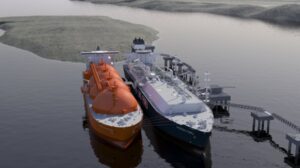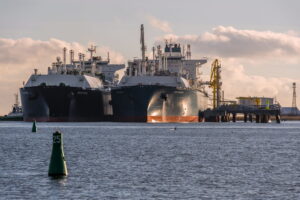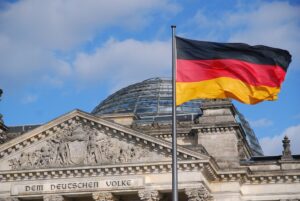The Kremlin is doing its best to prevent the construction of the LNG terminal at Croatia’s Krk Island. Teresa Wójcik, BiznesAlert.pl’s editor reports on what is happening behind the scenes in Croatia.
So far the preparation procedure for the construction of the Krk LNG terminal has taken over ten years. News that the LNG will be 20 percent more expensive than Russian gas, which will make the investment unprofitable, has been spread across the media in Croatia. According to experts from the USA, Russians are „taking over the Croatian gas market.”
Gazprom and Croatia’s Prvo plinarsko društvo company (PDD) have recently signed a 10-year contract for gas deliveries to Croatia. This piece of news passed almost unnoticed in Croatia, but it was widely reported on by the Russian media as a fact of strategic importance.
From a commercial point of view the significance of the contract is small. Gazprom will sell Croatia 1 bcm of gas a year. The details have not been revealed, but we know that they are quite beneficial for the Croatian company. The 'take or pay’ terms do not apply. The annual price will be based on the prices at the gas hub in Austria’s Baumgarten from which the gas will be delivered. It is estimated that during the 10 years the Russian gas will cost about EUR 2.5 bn, which is about EUR 0.25 bn annually.
However, the most important thing is that the gas will cover 70 percent of the Croatian market. Since the rest is ensured by domestic production, it has been argued that the LNG terminal at the Krk Island is an unnecessary investment. Additionally, the skeptics are pointing to the fact that this is not just about the cost, but also about the difficulties with distributing the gas, i.e. who would buy it from the terminal. The Hungarian market, which is the biggest one in the region, will be probably flooded with Russian gas from the Turkish Stream. Other markets in the Balkans are not interested. The capacity of the planned terminal is 2-2.5 bcm of gas a year, this is not much, but it has to be sold to someone.
In theory the Krk terminal is of strategic importance as the location of the island allows to distribute the gas in various directions. This is one of the reasons why the EU decided to bankroll the Croatian endeavor with EUR 100 m. Croatia’s President Kolinda Grabar-Kitarović is very engaged in the project. During his meeting with leaders of Central and Eastern Europe in July in Warsaw, President Donald Trump stated that the Krk terminal, together with the terminals in Świnoujście and Klaipėda, are necessary to reduce Russia’s gas pressure on the region. American businessmen and politicians believe that the terminal will open the gates for US LNG to southern Europe. This is important to implement the US plan to push Gazprom out of the European gas market. After the transaction between PPD and the Russian tycoon this plan is in jeopardy.
The US is asking questions whether the Croatian government did not know about PPD’s preparations to sign the deal with Gazprom and whether it was possible to prevent this from happening. Martin Keith, expert from the Gas & Oil Institute at a university in Pennsylvania presented the Senate Committee on Energy and Natural Resources a report on Gazprom’s commercial and political activities in the Balkans. The document is classified, but according to news leaks one of its conclusions says that pressure needs to be exerted on the Croatian government to annul the PDD-Gazprom contract. Obviously it is difficult to verify such leaks.
Doctor James Jay Carafano, Vice President of the Kathryn and Shelby Collum Davis Institute for National Security and Foreign Policy in the US, argues that America should take decisive action to complete the Krk LNG project. The first step is not let Russian gas enter the Croatian market. This means that, as Carafano emphatically stressed, „something needs to be done with this Croatian deal with Gazprom.”
Meanwhile the situation on the Croatian gas market may get even more complicated. The privatization of the country’s biggest gas consumer and one of its largest industrial companies – Petrokemija will soon start. PDD has just submitted an application to take over the firm. It wants to recapitalize and expand the company and ensure additional gas deliveries. Obviously the gas will be imported from Russia. However, the question is where did PPD get the money to buy the rather expensive Petrokemija and to promise its expansion? It has been suspected that that Russia is interested Petrokemija’s privatization.








